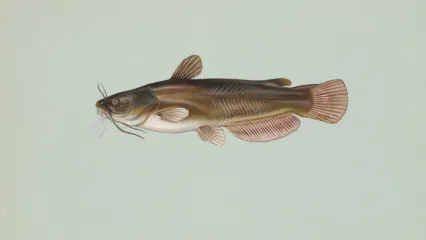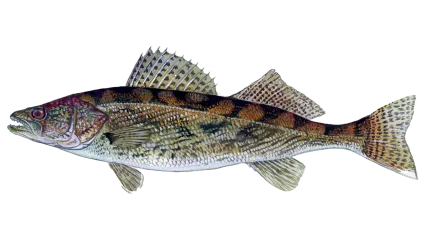
Description
Common statewide in streams, ponds, and lakes.
Channel catfish have a forked tail as does the blue catfish. The anal fin will be curved across the bottom on a channel catfish.
Facts: Good scrappers, channel catfish are a favorite of many anglers, and when taken from clean waters are excellent table fare. Catfish feed more by taste and touch than by sight and rarely exceed 50 pounds.
Habitat
Adult fish are found near cover in larger pools and deep holes. Immature channel cats are more tolerant of fast current, frequent riffles and shallow water.
Food sources: Channel catfish are omnivorous, feeding on a wide variety of organic matter, dead and alive. Some of the more common foods are fish, mussels, snails, insects, and crayfish.
Life Cycle
Spawning usually takes place in late May or early June when the water temperature reaches 75 degrees F. Hollow logs, overhanging underwater ledges or holes under mud banks are typical nesting places. Females lay about 10,000 eggs each. Males guard the eggs against intruders, including females. Eggs hatch in six to 10 days as determined by temperature. After hatching, fry are attended for a short time by the male as they feed in a dense school.


